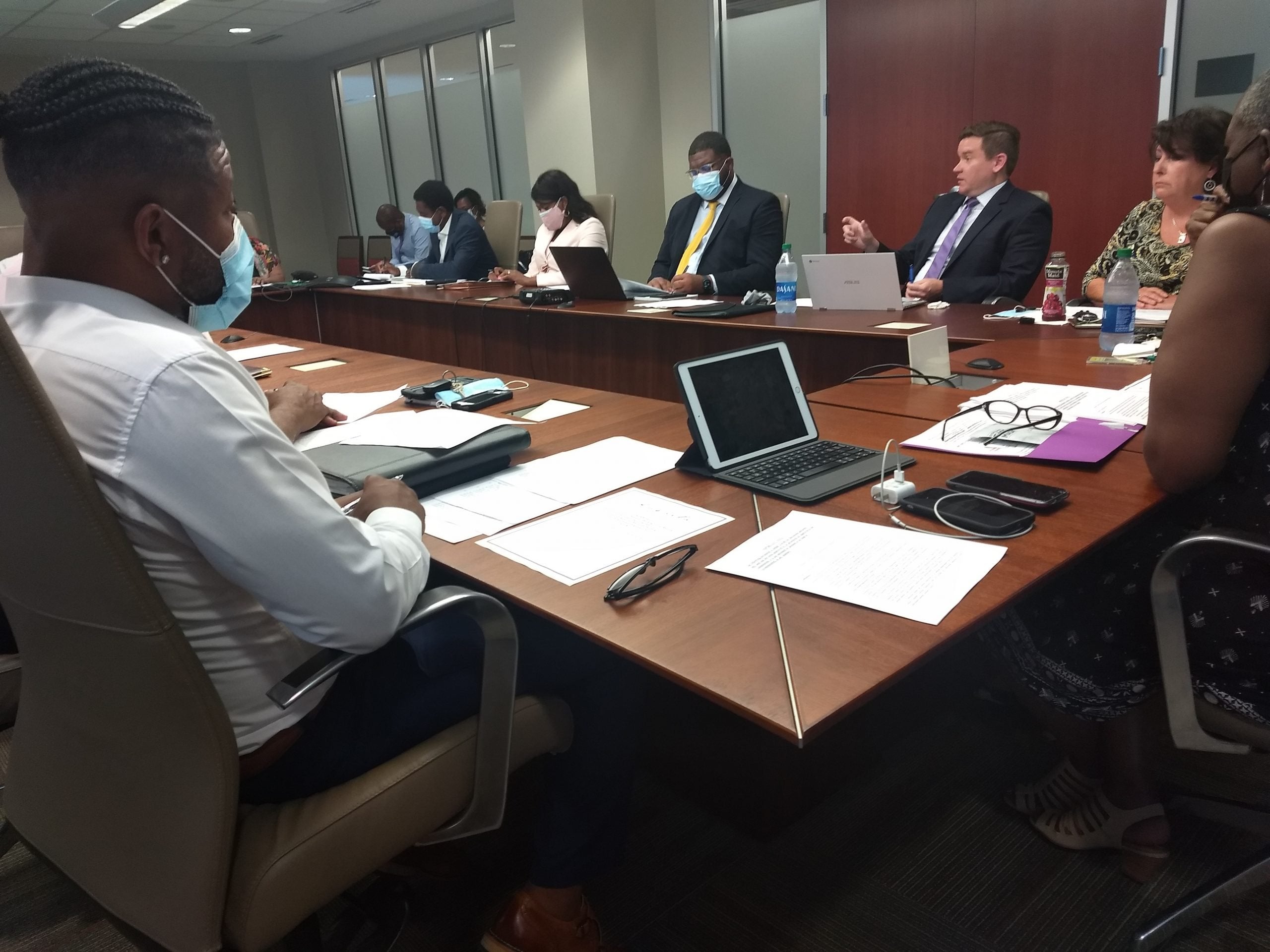The group charged with refining a draft non-discrimination ordinance for Augusta met to discuss what may work, and what may not.
Chaired by Augusta Commissioner Francine Scott, the working group includes other commission members, the city law department, compliance office, business representatives, faith-based groups and the LGBTQ community.
MORE: Augusta Commissioners Get First Look at Proposed Anti-Discrimination Ordinance
The round table discussion found areas of agreement, such as requiring anyone making a complaint to be charged a $50 filing fee and sending the complaint to nonbinding mediation. Commissioner Scott’s suggestion that the penalty for a first offense be sensitivity training was met with some support.
Mayor Hardie Davis first proposed the idea in 2019. Augusta’s drafted ordinance uses the same definitions many Georgia cities who passed ordinances for protected groups use. Categories include age, sex, national origin, religion and sexual orientation. It also includes the definitions of what constitutes unlawful practices as outlined in ordinances in effect in the other cities.
The proposed Augusta ordinance places initial responsibility on the city’s Compliance Department.
[adrotate banner=”19″]
A complaint must be filed, in writing, within 90 calendar days of when the alleged violation occurred. The department will serve a copy of the complaint to the alleged violator within 14 calendar days. Commissioner Dennis Williams feels that 90 days is too long and suggested the deadline to file be 30 days.
A complaint then goes to nonbinding mediation. If either side is dissatisfied with the outcome, the Compliance Department will have the marshal’s office notify both parties, calling them to appear for a hearing in magistrate court which can lead to a trial if necessary.
The amount of time involved in the process concerned Sue Parr, president of the Metro Augusta Chamber of Commerce, if a complaint were to end up in magistrate court.
She said, “When you start going into the court system, just from a cost and time perspective for a business, that’s potentially very lengthy. When the cost to adjudicate the process is more than the penalty, you have to wonder what we’re trying to achieve.”
Commissioner Jordan Johnson agreed magistrate court should not be involved. He pointed to Savannah’s adopted ordinance that uses a hearing officer, an attorney with experience in constitutional law and discrimination to hear the complaint.
[adrotate banner=”54″]
If the hearing officer determines there is merit to the complaint, they refer it to voluntary, non-binding mediation. If an agreement cannot be reached the hearing officer can collect evidence, schedule a hearing and both sides can call witnesses. The cost of the mediator and hearing officer is paid by the losing party. Both parties have the right to appeal the decision to the Recorder’s Court of Chatham County.
Attorney Matt Duncan, who is the legal counsel for Augusta Pride, felt the meeting was helpful to determine what needs to be done to craft an ordinance tailored to Augusta’s needs.
MORE: A Look at Anti-Discrimination Ordinances Across Georgia
“We need to drill down deep into the enforcement mechanisms, make sure that the costs are as low as possible but while we’re doing that, remember what we’re trying to do which is to protect people who are being discriminated against,” he said. “We want to make Augusta the type of city that everyone feels welcome to live in, to work in, to raise their family.”
City Attorney Wayne Brown reminded the group the ordinance is just a draft at this moment. He suggested future meetings of this working group may want to focus on one area at a time, be it how complaints are filed, how the ordinance is enforced, if complaints are handled by a hearing officer or in magistrate court. Once each component is refined, it can be incorporated into the final wording.
Commissioner Scott suggested they meet again in two weeks, but a final date wasn’t determined.
Dana Lynn McIntyre is a Staff Reporter with The Augusta Press. You can reach her at dana@theaugustapress.com.
[adrotate banner=”15″]











